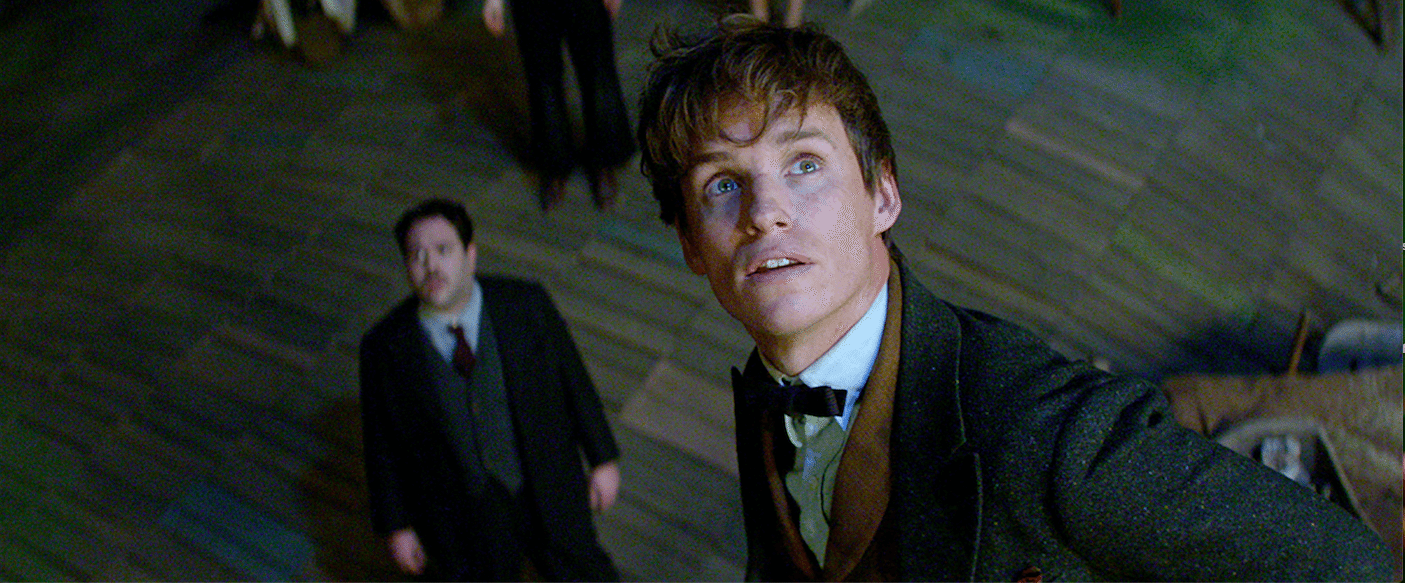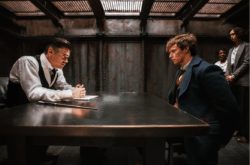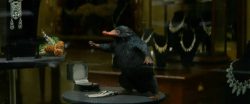Fantastic Beasts and Where to Find Them: ‘the best one so far’
David Yates hails in the post – or past – Potter era with a charming and comedic cast.
Most film sequels are met with cynicism – too many franchises have been ruined by that last inconsequential instalment. After the success of Harry Potter and the Cursed Child, J.K. Rowling’s first foray into theatre, there is inevitable pressure on the first of what will be five films exploring the magical realm in the years before Potter.
I attended the crew screening of Fantastic Beasts and Where To Find Them in Leicester Square last weekend. David Yates, introducing the film straight from his plane back from the New York premiere, said that it had gone down well with the initial audience, and hoped we would enjoy it. After watching the film, I vouch that it is absolutely wonderful, and, dare I say it, the best so far.
Set in a gothic, prohibition-era New York and loosely based on the 2001 charity anthology Fantastic Beasts and Where to Find Them, Eddie Redmayne as Newt Scamander leads an entirely new cast of predominantly American witches and wizards. Redmayne and Colin Farrell, in a supporting role, are the most famous faces – the majority of the cast is fresh and unknown, much to the film’s advantage. Although Redmayne is perfect as the quivering, gentle, inept Scamander, the strongest performances come from his supporting cast, namely Dan Fogler playing the lovable no-maj (American for Muggle) Jacob Kowlaski.
This world is far removed from the one in which we have thus far been immersed, and we explore this one with pleasure. Fans of the books will particularly appreciate the creatures here, recognising Nifflers and Murtlap from the novels. Scamander’s animals – all realised stunningly, with intrinsic personalities, are an outstanding achievement by visual effects. The Magical Congress of the United States provides a contrast to the British Ministry of Magic, and their unforgiving President Picquery (Carmen Ejogo), clashes with the unapologetically British Scamander.
In line with the Potter series, friendships are of the highest value, and it is the bond between Scamander and Kowlaski which evokes the only tear-jerking moment of the film
The film was written and produced in the last three years. There are undeniable parallels with reality, which can be aligned with J.K. Rowling’s political views. The presence of a female President reflects foreshadows her vocal support of Hillary Clinton. Redmayne’s character queries the prohibition of magical and non-magical relationships, echoing the contemporary issue of gay marriage in America (which was legalised in 2015).
Relationships, both romantic and platonic, are at the forefront of Fantastic Beasts. In line with the Potter series, friendships are of the highest value, and it is the bond between Scamander and Kowlaski which evokes the only tear-jerking moment of the film. Furthermore, Katherine Waterston as Tina Goldstein provides a strong female lead, on an equal footing with Scamander, comparable to Hermione Granger role as the ‘only girl’ in Potter’s world. In a welcome progression from the earlier films, the humour is considerably more adult, Tina’s mind-reading Queenie (Alison Sudol) illuminating a dinner scene where she and Klosky flirt telepathically.
The humour balances out a darker tone of the film. Without Voldemort, the greatest mystery prior to its release was who or what would be the villain. Without giving much away, Rowling and her team succeed in inciting genuine fear and terror in both the audience and the characters.
Its release in a politically seminal year, with widespread worry, controversy and outcry over Brexit and Trump, would inevitably “resonate and impact” on the film’s reception
David Yates, who directed the last four Harry Potter films and has signed on for the entire Fantastic Beasts franchise, said on BBC Radio 4 that the film was set, “in 1926 between the wars, [when] Nazism is just beginning to appear.” Its release in a politically seminal year, with widespread worry, controversy and outcry over Brexit and Trump, would inevitably “resonate and impact” on the film’s reception. David Heyman, the film’s producer, said, “These issues that we are talking about being very current and resonant are actually very timeless, that’s something we probably need to pay attention to.”
The film certainly expresses some of humanity’s seemingly permanent problems, but instead of dwelling on them, it brings some well-needed cheerfulness to what has been a difficult year for the world as a whole. As we mourn the loss of Alan Rickman and many others, Fantastic Beasts feels like the heralding of a new, optimistic era of magic – which is exactly what the world needs.
Director: David Yates
Starring: Eddie Redmayne, Katherine Waterston, Alison Sudol, Johnny Depp, Colin Farrell, Dan Fogler
Country: USA
Run Time: 133 minutes



Comments